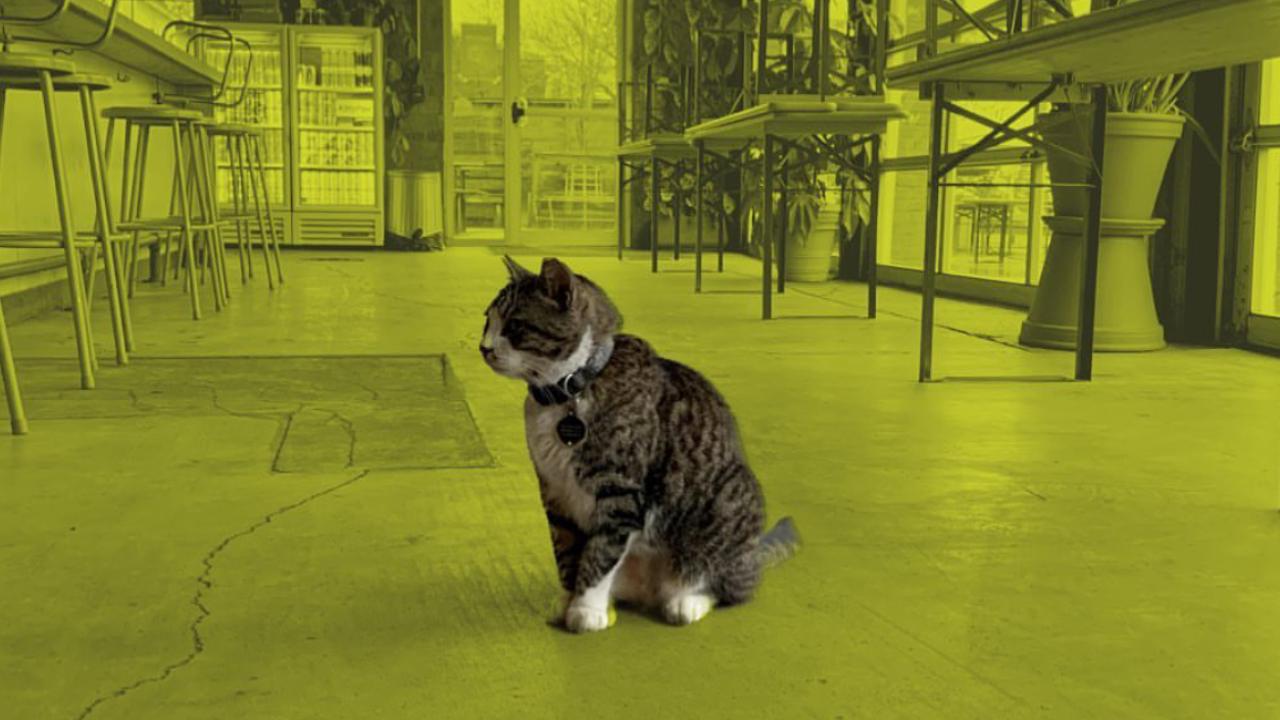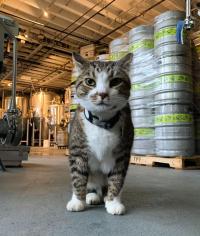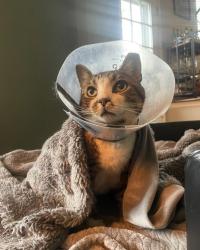
“Assistant Manager” Cat Gets Cancer Treatment and Moves Research Forward

What should a business owner do when a favorite employee gets cancer? What if that employee is a cat? When Horatio, “Assistant Manager Cat” of Seventh Son Brewing Co. in Columbus, Ohio—loved by guests and staff alike—was diagnosed with fibrosarcoma, the brewery took an unconventional approach to help both Horatio and the species. Seventh Son opened a GoFundMe for which 50 percent of the proceeds go to Horatio’s treatment, and the other 50 percent to the UC Davis Feline Cancer Research Fund and an Ohio organization dedicated to saving pets' lives through funding veterinary care.
The Feline Cancer Research Fund is managed by the School of Veterinary Medicine’s Center for Companion Animal Health. Dr. Michael Kent, director of the center, said “Everything we do, everything we discover is to help gain more knowledge so we can improve the treatment of disease. We then take this and publish it, present it at conferences and put it in textbooks so the knowledge is disseminated for all to use.” Speaking of the donation, he said, “This gift to benefit cat cancer research will be put to use to help us better tackle this disease that is the number one killer of cats. Our research has shown that over 35% of cats will die of this disease and it is vital that we come up with better diagnostics and treatments.”
The research fund is contributing to active research that is uncovering important discoveries in feline cancer treatment. Key current research includes:
• A study of longevity and mortality in cats. This study examined 3,100 client-owned cats who underwent a necropsy at UC Davis veterinary hospital. The study examined demographic and environmental factors, age, cause of death and spay/neuter status. Cancer was the most common pathophysiologic cause of death (35.81%) and was identified in 41.3% of cats.
• A study of feline oral squamous cell carcinoma (OSCC). The preliminary findings from this study are important, given recent successes reported in human cancer for new drugs that target abnormal immune cells or pathways. The study’s findings suggest that feline patients with OSCC may also respond to drugs that target abnormal immune cells or immune pathways associated with this cancer. These studies are necessary to identify immune markers that predict disease outcome for feline OSCC patients and to determine immune targets that will help design new therapies for this feline cancer, that is currently with so few effective therapeutic strategies.

• A study on predicting early treatment failure in feline nasal lymphoma (feNL) treated with radiation therapy. This study aims to determine how nasal tissue samples can be used to predict whether cats will have early therapy failure following radiation therapy. The findings will help identify cats that are prone to early treatment failure, facilitating follow-up studies aimed at identifying better treatment methods for poor responders. Together, the findings of this study could improve prognostication and standard of care for cats with feNL.
• A pharmacokinetic analysis of vinblastine in tumor bearing cats and analysis of population covariates. There is currently no information on feline pharmacokinetics of vinblastine sulfate, a chemotherapeutic drug commonly used in veterinary medicine as a component of multi-drug treatments for lymphoma. Pharmacokinetics refers to the time course of absorption, distribution, metabolism and excretion of drugs within the body and it is dependent on the chemistry behind the drug along with numerous patient-related factors such as age and kidney and liver function. Identification of important pharmacokinetic parameters of vinblastine in predicting patient outcome, and the patient characteristics that drive those parameters, may allow for better tailoring of vinblastine dosing in cat populations and improve the ability to predict efficacy and toxicity of this important drug in feline cancer therapy.
You can follow Horatio via his Instagram account.
